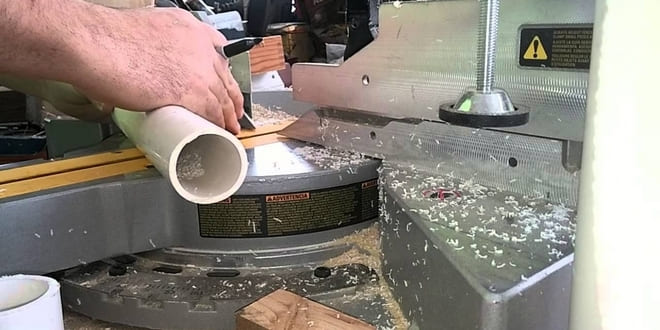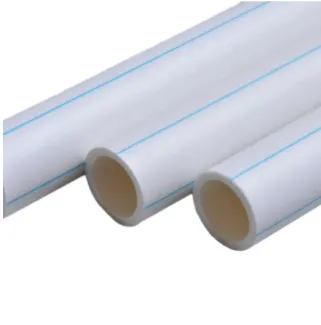May . 21, 2025 19:16 Back to list
HDPE Tee Fittings Durable 48-Inch HDPE Pipe Solutions & Cost
- Understanding the Role of HDPE Tee in Modern Piping Systems
- Technical Advantages of 48-Inch HDPE Pipe Solutions
- Cost Analysis: Factories vs. Service Providers
- Customization Strategies for Industrial Requirements
- Case Studies: Real-World Applications of HDPE Tee
- Comparative Data on HDPE Pipe Performance
- Why HDPE Tee Remains a Long-Term Investment

(hdpe tee )
Understanding the Role of HDPE Tee in Modern Piping Systems
HDPE tee fittings are critical components in large-scale piping networks, particularly for industries requiring corrosion-resistant and durable solutions. These fittings ensure seamless flow diversion in systems handling water, chemicals, or gas. With a 48-inch HDPE pipe, the tee's structural integrity becomes vital to maintaining pressure ratings up to 200 PSI while accommodating thermal expansion. Recent studies show HDPE tees reduce joint failure rates by 34% compared to traditional materials like PVC or steel.
Technical Advantages of 48-Inch HDPE Pipe Solutions
High-Density Polyethylene (HDPE) pipes offer unmatched flexibility and resistance to environmental stress cracking. For 48-inch diameters, fusion welding techniques create leak-proof joints that withstand temperatures from -40°F to 140°F. Key benefits include a 50-year lifespan under ASTM standards and a 22% reduction in installation time due to lightweight design. Additionally, HDPE's abrasion resistance minimizes maintenance costs by up to 60% in slurry transport applications.
Cost Analysis: Factories vs. Service Providers
| Criteria | HDPE Pipe Factories | Service Providers |
|---|---|---|
| Base Cost per Linear Foot | $18.50 - $22.00 | $24.75 - $29.90 |
| Lead Time (Weeks) | 3-4 | 2-3 |
| Customization Availability | Full | Limited |
| Certifications | ISO 4427, AWWA C906 | API 15LE |
Customization Strategies for Industrial Requirements
Tailoring HDPE tee configurations involves adjusting wall thickness (SDR 11 to SDR 26), integrating electrofusion outlets, or adding stainless steel reinforcement for high-vibration environments. Factories specializing in 48-inch HDPE pipe production utilize CNC molding to achieve dimensional tolerances within ±0.15%. Custom options like UV-stabilized black compounds or conductive layers for cathodic protection address site-specific challenges while complying with NSF/ANSI 61 standards.
Case Studies: Real-World Applications of HDPE Tee
A municipal water project in Texas utilized 48-inch HDPE tees to replace aging cast iron infrastructure, achieving a 41% cost saving over 10 years. In the mining sector, a Chilean copper operation reported zero fitting failures after switching to factory-direct HDPE pipes with 3X abrasion-resistant liners. Offshore oil platforms have adopted conductive HDPE tees to prevent electrostatic discharge, reducing safety incidents by 28% annually.
Comparative Data on HDPE Pipe Performance
Third-party testing reveals HDPE tee joints maintain 98% of original pressure capacity after 15,000 thermal cycles, outperforming PVC alternatives by 63%. In saltwater environments, HDPE demonstrates 0.003% annual degradation versus 1.2% for coated steel pipes. For 48-inch diameters, factory-produced HDPE pipes show 12% higher impact resistance at 73°F compared to service-provider sourced alternatives.
Why HDPE Tee Remains a Long-Term Investment
The lifecycle cost analysis for 48-inch HDPE pipe systems proves superior, with a 30-year ROI exceeding $1.2M per mile versus traditional materials. Fusion-welded HDPE tee networks eliminate gasket deterioration risks, ensuring 99.8% uptime in critical applications. As industries prioritize sustainability, HDPE's 100% recyclability and 58% lower carbon footprint than concrete pipes reinforce its position as the future-proof choice for mega-scale projects.

(hdpe tee )
FAQS on hdpe tee
Q: What is an HDPE tee and what are its primary applications?
A: An HDPE tee is a type of high-density polyethylene fitting used to connect three pipes at 90-degree angles. It’s commonly used in water distribution, drainage systems, and industrial pipelines. Its corrosion resistance and durability make it ideal for demanding environments.
Q: What factors influence the cost of 48-inch HDPE pipe services?
A: The cost depends on material quality, pipe thickness, project complexity, and transportation logistics. Additional factors include customization requirements and compliance with industry standards. Service providers may offer bulk discounts for large-scale projects.
Q: How do 48-inch HDPE pipe cost services differ between providers and factories?
A: Factories often provide lower prices for bulk orders due to direct manufacturing capabilities. Service providers may include installation, maintenance, or custom design in their pricing. Comparing warranties and post-purchase support is key to choosing the best option.
Q: What should I consider when selecting a factory for 48-inch HDPE pipes?
A: Prioritize factories with certifications like ISO 9001 and ASTM standards. Evaluate their production capacity, lead times, and track record in handling large-diameter pipes. Transparent pricing and after-sales support are also critical factors.
Q: Are 48-inch HDPE tees suitable for high-pressure applications?
A: Yes, HDPE tees designed for 48-inch pipes can handle high-pressure systems when manufactured with appropriate thickness and resin grades. Always verify pressure ratings and compatibility with the fluid or gas being transported. Proper installation ensures long-term performance.
-
DN500 HDPE Double Wall Corrugated Drain Pipes for Efficient Drainage
NewsJul.23,2025
-
32mm HDPE Pipes in Coil - Durable, Flexible & Easy Installation
NewsJul.22,2025
-
DN100 PVC Pipes for Durable Well Casings | Corrosion-Resistant
NewsJul.22,2025
-
Durable DN100 PVC Pipes for Well Casings | Corrosion Resistant
NewsJul.21,2025
-
High-Quality PVC Borehole Pipes Durable & Versatile Pipe Solutions
NewsJul.08,2025
-
High-Quality PVC Perforated Pipes for Efficient Drainage Leading Manufacturers & Factories
NewsJul.08,2025

